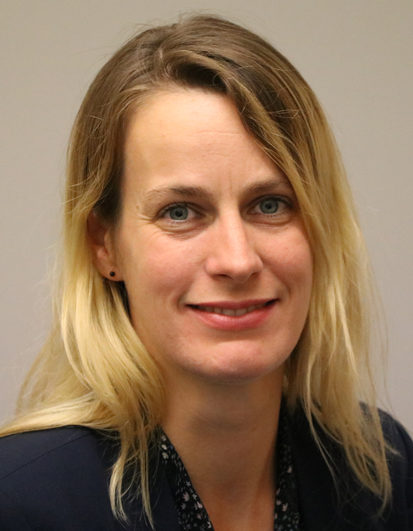Security Challenges to the 2019 Election in Nigeria
The upcoming general election in Nigeria might not be of intrinsic interest for most citizens. Despite a good track record of many peaceful transitions of power through elections, there are concerns about the security situation. This affects not only the general level of security in the country, but also the election process itself and the role of incumbent government officials trying to influence the process in their favor.
Security situation in general
The causes of Nigeria’s manifold security deficiencies are rooted deep within the fabric of the state (government security structures such as the police) or non-state mechanisms (militant and terrorist groups) competing and overlapping each other. The most prominent have been the terrorist attacks by Islamist militant groups like Boko Haram, most notably in the north-eastern states of Yobe, Kano, Bauchi, Borno and Kaduna. Central Nigeria sees fights for land between farmers and herdsmen in the middle belt, in the geographical centre and in the south eastern region. And in the south lingers the longstanding conflict with the Biafran Separatist Movement that is fuelled by environmental problems due to the oil production. Those security problems forced millions of people to leave their home and change their modes of living, whether within the borders or beyond. Additionally, the absence of job opportunities for the youth and insufficient investments in health, education and power infrastructures are further weakening the economic and social outlook for the inhabitants of the rest of the country. It is not surprising that the ruling government (All Progressives Congress, APC) could not initiate fundamental improvements of the living conditions for the population: Implementing sustainable solutions need more time than one presidential term and requires a multipartisan strategy.
Implication of successful elections
Having said that, Nigeria is one of the few countries in Africa that has consistently held successful periodic election to sustain its democracy. The country has successfully organized democratic transitions in 1999, following the first multiparty election after a series of military regimes. Until today, Nigeria has experienced five national multiparty elections (2003, 2007, 2011, 2015). All these elections have been characterized by certain flaws that were subsequently corrected before the next election. This includes ballot stuffing, violence during election, voting manipulation in different manners and occasions during the process as well as inflation and illegal alteration of vote counts.
The Osun state by-election of 2018
As the country is intensely preparing for another national multiparty election, to be held on February 16th, there are doubts about the capacity of the national security agencies to guarantee free and peaceful conduct of election in the country. This concern evolved from a state of insecurity and connivance of the Nigerian police officers assigned to some recently held by-elections in various parts of the country. The most heinous was a by-election for the governor of Osun state, in August 2018, which was marked by a heavy militarization of the state that intimidated the electorate. In that by-election held only in two local government areas of Osun state, the number of soldiers and police officers outnumbered the citizens that were to vote in the election. Besides, the security outfits deployed were equipped with armoured tanks and other heavy weapons. The security personnel was sporadically shooting into the air to intimidate political opposition, who were not informed of the presence of heavy security. Defiant members of opposition parties were either intimidated or forcefully arrested during the election and denied voting.
Equipping and exploiting the Police
Similarly, police officers were accused of barring election monitors and observers from participating and observing the election. Some security agents manning the polling stations were also accused of physically beating and violently harassing members of opposition parties during the by-election. These incidents are already causing security tension as a build up to the national/presidential elections in February 2019. Opposition parties fear that the ruling party may militarize security efforts similar as in Osun state’s by-election. In the same vain, they expressed concern on the federal government’s increase of police officers’ salaries and emoluments as well as the recruitment of more than 10.000 police officers nation-wide. These steps are suspected to be a way of pleasing police officers to make them willing to be accomplices to vote manipulation by the ruling party.
In conclusion, the tense security situation around the forthcoming election can make its organization amenable to manipulation by the ruling APC. However, as the opposition parties are carrying this perception too far, the government and the police need to control the building tension instead of fermenting it. Notwithstanding, some of the apprehensions such as incentives given to Nigerian police, are not necessarily linked to election manipulation: stable wages for police officers also means that they tend to be less corruptible, and less partisan. The Nigerian police needs to assure the public of its non-partisanship irrespective of incentives recently enjoyed from the government. The government and its election agency need to ensure a strong and non-partisan security organization as a necessary precondition for free and fair elections. Security should not be compromised to guaranty deepening of democracy in Nigeria.
Reihen
Ähnliche Beiträge
Schlagwörter
Autor*in(nen)

Aderemi Suleiman Ajala

Latest posts by Aderemi Suleiman Ajala (see all)
- Security Challenges to the 2019 Election in Nigeria - 12. Februar 2019

Nina Müller

Latest posts by Nina Müller (see all)
- Security Challenges to the 2019 Election in Nigeria - 12. Februar 2019